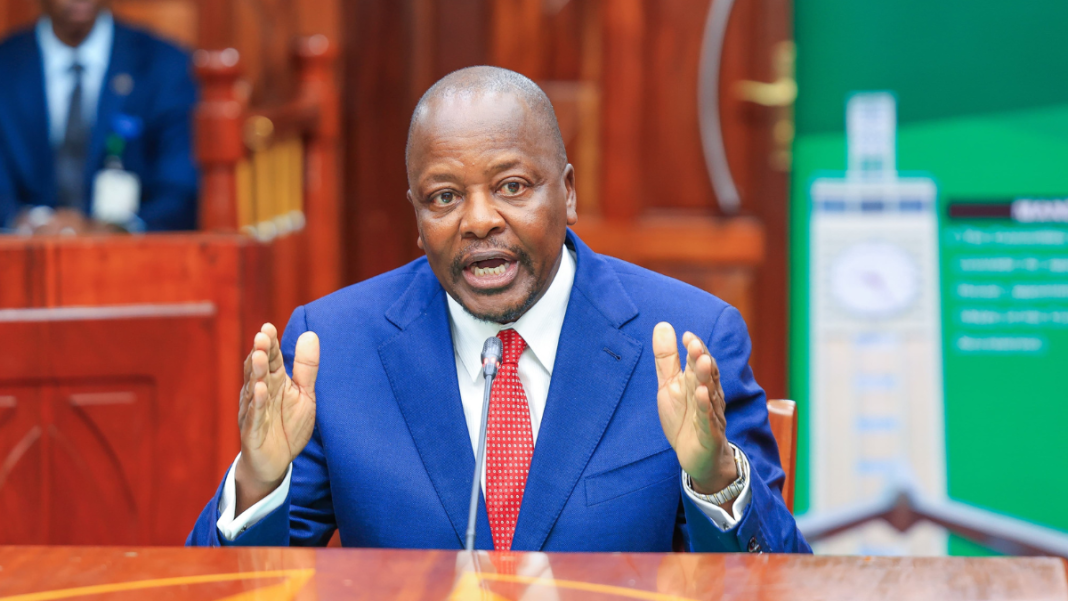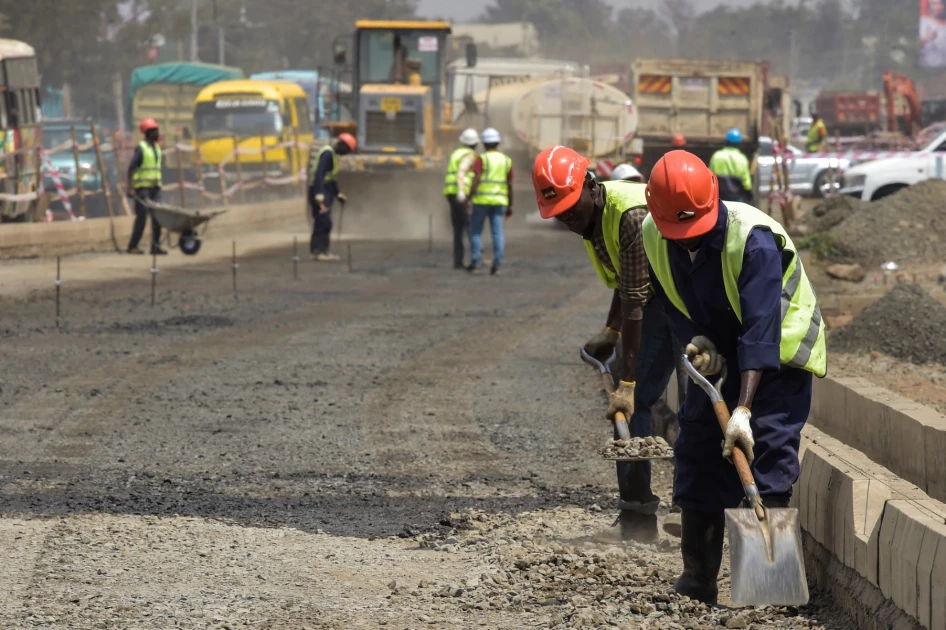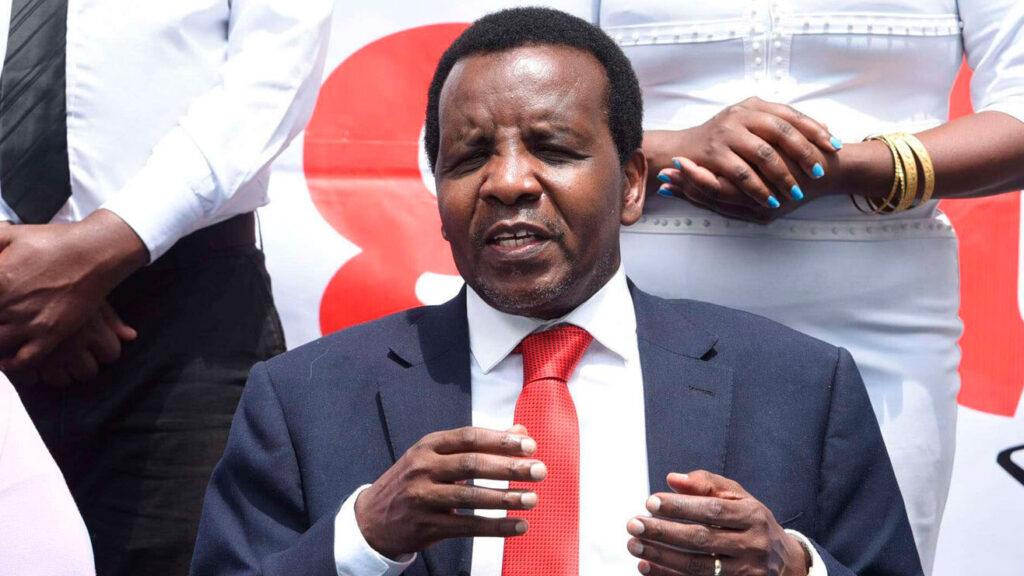The Kenya Bureau of Standards (KEBS) has firmly denied claims suggesting that contaminated sugar is set to be released into the Kenyan market, terming the allegations as unfounded and misleading.
In a public statement dated July 31, the regulatory body reassured Kenyans that all sugar, whether locally produced or imported, undergoes thorough inspection and testing before being cleared for human consumption.
“KEBS would like to dispel these allegations and ascertain that both locally produced and imported sugar undergo mandatory and rigorous inspection, testing, and certification before release to the market,” the bureau said.
This follows serious accusations by Wiper Party leader Kalonzo Musyoka, who claimed that 25,000 tonnes of contaminated sugar had docked at the Port of Mombasa and was en route to Western Kenya for repackaging and sale.
KEBS, however, dismissed these claims and urged Kenyans to ignore the circulating reports, especially those spreading through social media platforms. The agency emphasized its commitment to safeguarding public health through stringent quality checks on consumables.
In a related development, the Ministry of Agriculture has come under fire following its decision to import 500,000 metric tonnes of Grade 1 white milled rice. Critics, including opposition leaders and rice farmers, argued that the move undermines local agriculture and could destabilize farmer livelihoods.
Agriculture Cabinet Secretary Mutahi Kagwe defended the importation, stating that it is necessary to meet national demand due to Kenya’s persistent deficit in local rice production.
“In the last three years, for example, we have imported an average of over 700,000 metric tonnes of rice per year. We only produce about 20 percent in Mwea and in other parts of our nation of our rice intake. The rest is imported,” said Kagwe.
He dismissed claims that the importation aims to sabotage local farming efforts.
“I don’t understand why there was this confusion about whether we are importing rice so we can kill the local industry. It is the same for wheat, we import 90 percent but still support our farmers,” the CS added.
Kagwe assured local rice growers that the government will purchase all the available rice from granaries nationwide and encouraged them not to panic over the import strategy.







[5868]1plusgame: Top Slot Online in the Philippines. Easy Login, Register, and Download App via Official Link. Experience 1plusgame, the top slot online in the Philippines. Use our official link for fast 1plusgame login, easy register, and 1plusgame download app. Join and win now! visit: 1plusgame
It’s nearly impossible to find well-informed people in this particular topic, however, you sound like you know what you’re talking about! Thanks
Oh my goodness! Incredible article dude! Many thanks, However I am experiencing troubles with your RSS. I don’t know why I can’t join it. Is there anybody having identical RSS problems? Anyone who knows the solution will you kindly respond? Thanx!!
I am really delighted to glance at this web site posts which carries lots of useful facts, thanks for providing these kinds of statistics.
I pay a visit day-to-day some web pages and sites to read articles or reviews, however this weblog presents quality based writing.
I used to be recommended this web site by way of my cousin. I am now not certain whether or not this post is written through him as nobody else realize such detailed about my difficulty. You are wonderful! Thanks!
What’s up, its nice post about media print, we all understand media is a enormous source of information.
If you wish for to take a good deal from this article then you have to apply such strategies to your won website.
Howdy! I could have sworn I’ve been to this site before but after reading through some of the post I realized it’s new to me. Anyways, I’m definitely glad I found it and I’ll be book-marking and checking back frequently!
Thanks for one’s marvelous posting! I definitely enjoyed reading it, you’re a great author.I will be sure to bookmark your blog and definitely will come back very soon. I want to encourage you continue your great job, have a nice evening!
After I initially left a comment I appear to have clicked on the -Notify me when new comments are added- checkbox and now whenever a comment is added I receive four emails with the same comment. Is there a means you are able to remove me from that service? Thank you!
When I initially commented I seem to have clicked on the -Notify me when new comments are added- checkbox and now whenever a comment is added I receive four emails with the exact same comment. Perhaps there is a means you can remove me from that service? Many thanks!
After I originally commented I seem to have clicked the -Notify me when new comments are added- checkbox and from now on every time a comment is added I recieve four emails with the same comment. Perhaps there is a means you are able to remove me from that service? Appreciate it!
When I initially left a comment I seem to have clicked the -Notify me when new comments are added- checkbox and now whenever a comment is added I recieve four emails with the exact same comment. Perhaps there is an easy method you can remove me from that service? Appreciate it!
After I initially left a comment I seem to have clicked on the -Notify me when new comments are added- checkbox and now whenever a comment is added I get 4 emails with the same comment. Is there a way you are able to remove me from that service? Kudos!
When I originally commented I seem to have clicked the -Notify me when new comments are added- checkbox and now whenever a comment is added I receive 4 emails with the exact same comment. Perhaps there is a way you can remove me from that service? Thanks a lot!
When I originally left a comment I seem to have clicked on the -Notify me when new comments are added- checkbox and from now on each time a comment is added I receive four emails with the same comment. There has to be a means you can remove me from that service? Thank you!
After I initially left a comment I appear to have clicked on the -Notify me when new comments are added- checkbox and now every time a comment is added I get four emails with the exact same comment. There has to be a way you can remove me from that service? Cheers!
When I originally left a comment I seem to have clicked the -Notify me when new comments are added- checkbox and from now on every time a comment is added I recieve four emails with the same comment. Is there an easy method you are able to remove me from that service? Thanks!
When I initially left a comment I seem to have clicked the -Notify me when new comments are added- checkbox and now every time a comment is added I recieve four emails with the same comment. Perhaps there is a means you can remove me from that service? Thanks a lot!
When I originally commented I appear to have clicked the -Notify me when new comments are added- checkbox and from now on whenever a comment is added I get 4 emails with the exact same comment. There has to be a means you can remove me from that service? Thanks!
When I initially commented I appear to have clicked the -Notify me when new comments are added- checkbox and from now on each time a comment is added I receive 4 emails with the exact same comment. There has to be an easy method you can remove me from that service? Kudos!
Wow, that’s what I was looking for, what a material! existing here at this blog, thanks admin of this web site.
Hurrah, that’s what I was searching for, what a information! present here at this weblog, thanks admin of this site.
Wow, that’s what I was searching for, what a stuff! present here at this web site, thanks admin of this web site.
Hurrah, that’s what I was seeking for, what a stuff! present here at this blog, thanks admin of this web page.
Hurrah, that’s what I was exploring for, what a stuff! existing here at this webpage, thanks admin of this site.
Wow, that’s what I was searching for, what a material! existing here at this webpage, thanks admin of this web page.
Hurrah, that’s what I was exploring for, what a stuff! present here at this weblog, thanks admin of this website.
Wow, that’s what I was searching for, what a stuff! existing here at this website, thanks admin of this web page.
Hurrah, that’s what I was looking for, what a stuff! present here at this blog, thanks admin of this website.
Wow, that’s what I was searching for, what a information! existing here at this weblog, thanks admin of this web site.
Very good information. Lucky me I recently found your website by chance (stumbleupon). I have saved it for later!
Greate post. Keep writing such kind of information on your blog. Im really impressed by it.
paypal casino usa
References:
https://jobsinodisha.org/companies/top-online-casinos-that-accept-paypal-in-the-uk/
paypal casino online
References:
https://infuline.co.kr/
Tachi Palace has all the amenities that you
would expect at the best California casino four-star resort.
Tachi Palace has a variety of dining options available conveniently within the Casino and
hotel. At Tachi Palace, we welcome all our guests to enjoy a world of high-energy gaming action across our two distinct casino areas — the Casino of the Moon As
a Luxury hotel near Fresno and a premier Spa resort California
travelers love, Tachi Palace puts everything you need in one place.
Use the interactive Minnesota casinos map below to determine which of the 20 casinos
in Minnesota is closest to you. Many have wondered how to
win at an online casino, and the answer […] Yet, there
are subtleties to this simple and inescapable truth,
subtleties you can bend to your own will and find those games
that offer the highest payout and lowest house edge.
References:
https://blackcoin.co/boho-casino-review-your-ultimate-guide/
With the Christmas Day results, six of the seven NFC teams have now clinched a playoff
spot, with the only remaining opening coming down to the NFC
South division winner. The Lions have now lost three-straight games to knock
themselves out of the postseason picture. The result is a nice boon for the already-eliminated Vikings, and will only help the
Chicago Bears and Green Bay Packers in their playoff positioning.
What hasn’t helped is that the Lions seem to be playing their
worst in December, as they have now lost three-straight games.
Detroit entered Week 17 on the brink of playoff elimination, as the Lions’ inconsistent
play has kept them out of the playoff picture. Plus, who can join the Rams, Broncos, Seahawks and
Eagles in the playoffs?
Most recently, the Minnesota Vikings upset the Lions on Christmas
Day in a game that Detroit desperately needed to win. With the Chiefs out of
the picture, it is now Josh Allen’s time? CBS cameras
captured the Steelers wide receiver taking a swing at a fan during Sunday’s game
at Ford Field.
References:
https://blackcoin.co/find-your-best-casino-online/
Dabei bieten wir im Verde Casino sowohl klassische Spielautomaten als auch
moderne Videoslots. Bei uns können Sie jeden Spielautomaten vollkommen risikofrei
als Testversion so lange spielen, wie Sie Lust haben. Wenn Sie schon bei uns im
Verde Casino spielen, dann wollen wir, dass Sie nicht zu kurz kommen.
Wir legen ebenfalls kein Zeitlimit fest, wie lange Spieler einen Slot
als Demo spielen dürfen. Mit rund 250 Slotspielen auf dem Markt
liegt der Fokus von Pragmatic Play ganz klar in diesem Bereich.
Obendrein bieten moderne Automatenspiele die Möglichkeit, sich einen Bonus zu kaufen. Diese Funktion wird bei
Kaskadenslots immer so lange aufrechterhalten, bis sich ohne neuen Dreh keine weiteren Gewinnkombinationen bilden.
Natürlich können Sie die besten kostenlosen Spielautomaten direkt hier
bei uns spielen, und zwar sogar ohne Konto! Damit Sie
immer nur die besten Online Slots spielen, haben wir eine spezielle Kategorie für die beliebtesten Slots eingerichtet.
Aus diesem Grund haben wir ein riesiges Sortiment von Automatenspielen zusammengetragen, aus welchem unsere Spieler
wählen können. Die Spiele der Sektion können in zwei
Formaten gespielt werden – online (gegen eine Software) und live
(gegen einen Dealer/Host). Glücklicherweise besteht immer
die Möglichkeit, den Meinungen der Mitspieler und zertifizierten Experten zu vertrauen. Neue Spieler
erhalten bis zu 1.200 Euro und 220 Freispiele.
References:
https://online-spielhallen.de/myempire-casino-auszahlung-im-detail-ihr-ultimativer-guide/
05vqck
z66nsh
t6jwat
zlzviz